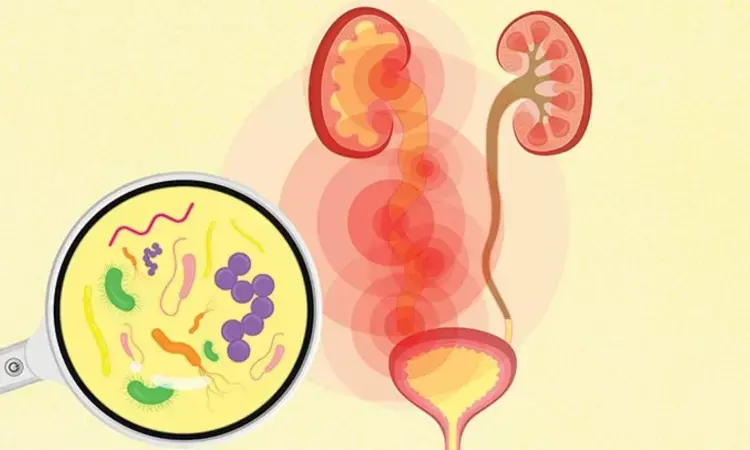- Home
- Medical news & Guidelines
- Anesthesiology
- Cardiology and CTVS
- Critical Care
- Dentistry
- Dermatology
- Diabetes and Endocrinology
- ENT
- Gastroenterology
- Medicine
- Nephrology
- Neurology
- Obstretics-Gynaecology
- Oncology
- Ophthalmology
- Orthopaedics
- Pediatrics-Neonatology
- Psychiatry
- Pulmonology
- Radiology
- Surgery
- Urology
- Laboratory Medicine
- Diet
- Nursing
- Paramedical
- Physiotherapy
- Health news
- Fact Check
- Bone Health Fact Check
- Brain Health Fact Check
- Cancer Related Fact Check
- Child Care Fact Check
- Dental and oral health fact check
- Diabetes and metabolic health fact check
- Diet and Nutrition Fact Check
- Eye and ENT Care Fact Check
- Fitness fact check
- Gut health fact check
- Heart health fact check
- Kidney health fact check
- Medical education fact check
- Men's health fact check
- Respiratory fact check
- Skin and hair care fact check
- Vaccine and Immunization fact check
- Women's health fact check
- AYUSH
- State News
- Andaman and Nicobar Islands
- Andhra Pradesh
- Arunachal Pradesh
- Assam
- Bihar
- Chandigarh
- Chattisgarh
- Dadra and Nagar Haveli
- Daman and Diu
- Delhi
- Goa
- Gujarat
- Haryana
- Himachal Pradesh
- Jammu & Kashmir
- Jharkhand
- Karnataka
- Kerala
- Ladakh
- Lakshadweep
- Madhya Pradesh
- Maharashtra
- Manipur
- Meghalaya
- Mizoram
- Nagaland
- Odisha
- Puducherry
- Punjab
- Rajasthan
- Sikkim
- Tamil Nadu
- Telangana
- Tripura
- Uttar Pradesh
- Uttrakhand
- West Bengal
- Medical Education
- Industry
Temocillin, a favorable alternative in empirical treatment of febrile UTI: Study

Sweden: The use of a "forgotten antibiotic" called temocillin in patients with febrile urinary tract infection (UTI) led to less disturbance of the intestinal microbiota than cefotaxime, show results from a study in The Lancet Infectious Diseases. Further, patients who received temocillin had reduced susceptibility to third-generation cephalosporins and significantly lower Enterobacterales proportions.
The results suggest that temocillin could be a favorable alternative in the empirical treatment of febrile UTI. The use of this antibiotic could reduce hospital transmission and healthcare-associated infections by these pathogens.
The use of third-generation cephalosporins, such as cefotaxime, is known to be associated with an increased risk of selection for antimicrobial resistance. So, there is a need for considering alternative antibiotics. Prof Håkan Hanberger, Linköping University, Linköping, Sweden, and colleagues, therefore, aimed to evaluate intestinal colonization with third-generation cephalosporin-resistant pathogens following the use of temocillin—an alternative antibiotic to cefotaxime that is potentially less prone to disturbing the intestinal microbiota—in the empirical treatment of febrile UTI.
For this purpose, the researchers designed a randomized, multicentre, superiority, open-label phase 4 trial in patients who had been admitted to inpatient care in 12 Swedish hospitals with suspected or diagnosed febrile UTI (complicated or uncomplicated). Participants were randomly assigned (1:1) to receive either 2 g temocillin or 1–2 g cefotaxime, by local investigators opening consecutive sealed randomization envelopes that were generated centrally in advance. Both drugs were administered intravenously every 8 h.
The composite primary outcome was colonization with Enterobacterales with reduced susceptibility to third-generation cephalosporins, or colonization with toxin-producing Clostridioides difficile, or both, to evaluate disturbance of the intestinal microbiota.
Between May 20, 2016, and July 31, 2019, 207 patients were screened for eligibility, of whom 55 patients were excluded. 152 participants were randomly assigned to groups: 77 (51%) patients received temocillin, 75 (49%) patients received cefotaxime.
Following were the study findings:
- The composite primary endpoint was met by 18 (26%) of 68 participants receiving temocillin versus 30 (48%) of 62 patients receiving cefotaxime (risk difference −22%), showing superiority of temocillin versus cefotaxime (ie, less disturbance of the intestinal microbiota).
- 43 adverse events were reported in 40 (52%) of 77 patients in the temocillin group, versus 46 adverse events in 34 (45%) of 75 patients in the cefotaxime group.
- Most events were of mild to moderate severity.
- 21 (27%) patients in the temocillin and 17 (23%) patients in the cefotaxime group had an adverse event that was considered to be associated with the study drug.
"Temocillin was found to be less selective than cefotaxime of Enterobacterales with reduced susceptibility to third-generation cephalosporins, and it could therefore be a favorable alternative in the empirical treatment of febrile UTI," wrote the authors. "The use of this antibiotic could reduce hospital transmission and healthcare-associated infections by these pathogens."
Reference:
The study titled, "The clinical and microbiological efficacy of temocillin versus cefotaxime in adults with febrile urinary tract infection, and its effects on the intestinal microbiota: a randomised multicentre clinical trial in Sweden," is published in The Lancet Infectious Diseases.
DOI: https://www.thelancet.com/journals/laninf/article/PIIS1473-3099(21)00407-2/fulltext
Dr Kamal Kant Kohli-MBBS, DTCD- a chest specialist with more than 30 years of practice and a flair for writing clinical articles, Dr Kamal Kant Kohli joined Medical Dialogues as a Chief Editor of Medical News. Besides writing articles, as an editor, he proofreads and verifies all the medical content published on Medical Dialogues including those coming from journals, studies,medical conferences,guidelines etc. Email: drkohli@medicaldialogues.in. Contact no. 011-43720751


